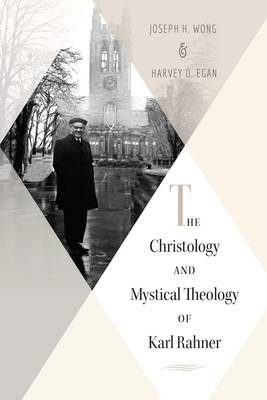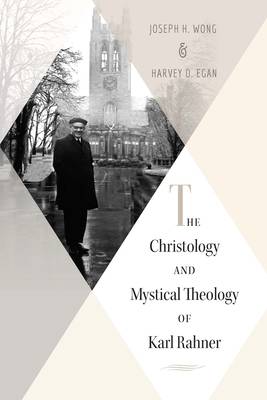
- Afhalen na 1 uur in een winkel met voorraad
- Gratis thuislevering in België vanaf € 30
- Ruim aanbod met 7 miljoen producten
- Afhalen na 1 uur in een winkel met voorraad
- Gratis thuislevering in België vanaf € 30
- Ruim aanbod met 7 miljoen producten
Zoeken
The Christology and Mystical Theology of Karl Rahner
Harvey D Egan, Joesph H Wong
Paperback | Engels
€ 57,45
+ 114 punten
Omschrijving
The Christology and Mystical Theology of Karl Rahner delineates what Rahner means by the mysticism of daily life, the mysticism of the masses, the mysticism of the classical masters, the difference between infused and awakened contemplation, the relation of mysticism to Christian perfection, and Rahner's controversial view that the mystical life does not require a special grace. It explores how Rahner embraces the person of Jesus Christ--whom Rahner sees as Christianity's center--both with his acute theological mind but also with his Jesuit heart. The book also looks at Rahner's view of Jesus as the absolute savior, his ascending and descending Christology, his creative re-interpretation of Christ's death and resurrection, his "seeking Christology, and his controversial "anonymous Christian" theory. Finally, it emphasizes the influence of St. Ignatius of Loyola on Rahner's thinking. Ignatius's Spiritual Exercises, especially their emphasis on God working immediately with the person, its Christology, and the rules for the discernment of spirits plays a key role in Rahner's overall theological view. Few Catholic theologians have taken Christian saints and mystics as theological sources as seriously as Rahner has.
Specificaties
Betrokkenen
- Auteur(s):
- Uitgeverij:
Inhoud
- Aantal bladzijden:
- 184
- Taal:
- Engels
Eigenschappen
- Productcode (EAN):
- 9780824598082
- Verschijningsdatum:
- 23/06/2020
- Uitvoering:
- Paperback
- Formaat:
- Trade paperback (VS)
- Afmetingen:
- 152 mm x 229 mm
- Gewicht:
- 326 g

Alleen bij Standaard Boekhandel
+ 114 punten op je klantenkaart van Standaard Boekhandel
Beoordelingen
We publiceren alleen reviews die voldoen aan de voorwaarden voor reviews. Bekijk onze voorwaarden voor reviews.











